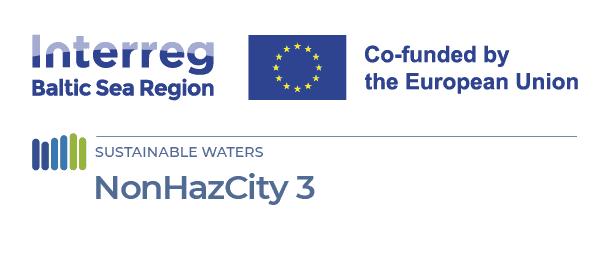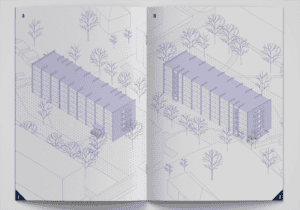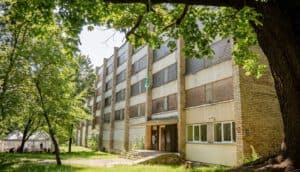
Tox-free, climate-neutral residential redevelopment and renovation of a social apartment for a large family
16 December 2024
Rigas team first project is the renovation of 11 Ziepju Street is intended as a pilot project and a model for the tox-free, circular and climate-neutral renovation of Soviet-era apartment buildings in Riga, installing a sustainable energy supply and making the building, its courtyard and the surrounding area contemporary and aesthetic. The refurbishment of the building will also serve as a pilot project for different tox-free and sustainable construction approaches and methods so that these solutions can be tested and implemented as standard construction practices.
The building that will be renovated is a five-story building located on 11 Ziepju Street, which has been serving as a dormitory for trolleybus depot staff since 1970. Later, the building was used as a shared house for various social groups.
The building has been vacant since 2018, with communication shut off and windows boarded up. After the renovation, it will be home to municipal rental apartments and daycare centres.
The redevelopment of this building is important not only for Riga Municipality but also for everyone else building in Riga and elsewhere in Latvia – planners, architects, engineers, and construction companies. The project pilot team hopes this initiative will be taken up first by the architects, the offices they manage and the partners they work with, to participate in the design competition.
Design procurement has been launched for that. In preparation for the major project, resident participation workshops have already been held, and a feasibility study has been carried out by the Riga Energy Agency (REA), involving students, architects, engineers and energy efficiency specialists.
Though Green Public Procurement (GPP) is now obligatory for construction projects in Latvia (e.g., there are some requirements and criteria for gypsum plasterboard wall panels), there are no strict requirements on hazardous substances in building materials. Management approved higher ambitions on using tox-free, re-usable materials in the renovation and these requirements should be higher than in the national GPP regulation. The focus of the redevelopment project is on indoor and outdoor materials. The Byggvarubedömningen (BVB) – the logbook tool and assessments of chemical content and lifecycle aspects will be used to determine the best products and providers within Latvia’s territory (https://byggvarubedomningen.com/).
The redevelopment of the building at 11 Ziepju Street will use circular solutions such as reusing materials from the site, reducing the consumption of new materials during construction and throughout the building’s future life, and avoiding waste and other pollution as far as possible.
The main stakeholder of the project: Housing and Environment Department of Riga Municipality
Other stakeholders involved:
- Riga Energy Agency – did a preliminary analysis and prepared the procurement.
- Municipal real estate company “Rigas nami” – the owner of the building, the purchaser of design and reconstruction works.
- City Development Department of Riga Municipality – supported the preparation of procurement.
- Welfare Department of Riga Municipality – responsible for daycare centres and other social support in the city, minor customers.
- The Latvian Association of Architects – cooperation in the development of the procurement.
The second pilot is to renovate a municipal social apartment for a large family, testing NHC3 solutions. Although Green Public Procurement (GPP) is mandatory for construction projects in Latvia, the team set even higher standards by prioritizing toxic-free and reusable materials. The renovation at Zemes street 4 will use the BVB catalogue to select the best eco-friendly products and suppliers within Latvia. Procurement followed a three-pillar approach: eco-labelled materials for chemical safety, energy-efficient windows for climate impact, and strong focus on waste sorting and material reuse for circularity. A key success factor was strong management support and openness to trying innovative methods, even when they involved higher costs.


Interactive map showing pilot locations. Use the arrow keys to move the map view and the zoom controls to zoom in or out. Press the Tab key to navigate between markers. Press Enter or click a marker to view pilot project details.





